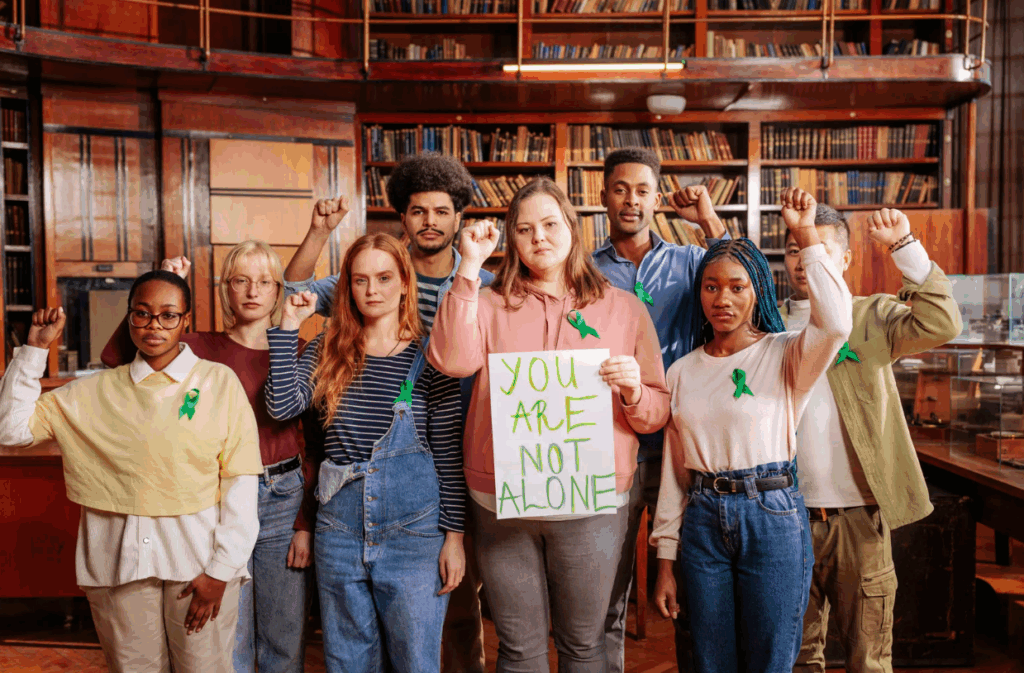Personal injury recovery requires more than physical rehabilitation processes. Psychological distress following an injury can reach devastating levels that surpass physical damage for some people.
Serious injuries affect victims’ mental health extensively yet this aspect gets missed because medical professionals prioritize physical treatment.
Statistics show that as many as one-third of people who survive car crashes will experience symptoms of PTSD. One-third of vehicle collision victims face serious mental health challenges during their physical recovery process.
The path to full recovery demands attention to both physical and mental health. In this section we will examine the importance of mental health support for personal injury victims and define what constitutes effective support.

What You’ll Discover:
- How Personal Injuries Impact Mental Health
- Common Mental Health Challenges After an Injury
- Effective Mental Health Support Options
- Building Your Support Network
- Legal Considerations for Mental Health Claims
How Personal Injuries Impact Mental Health
Physical injuries leave lasting marks that extend beyond the body to cause significant mental health disruptions. An unexpected injury can transform your entire life within seconds. Activities you once enjoyed might become impossible. Your independence might vanish. The weight of increasing medical expenses puts your financial stability at risk.
A combination of these elements generates an ideal scenario for developing mental health problems.
Think about it:
- You’re in physical pain
- You’re worried about recovery
- You’re stressed about medical costs
- You might be unable to work
- Your relationships might be strained
- Your routines are disrupted
Research revealed that people who sustain workplace injuries show more severe mental health declines over time than those who suffer nonworkplace injuries with compensation processes potentially worsening these effects.
Working with a qualified personal injury lawyer early in your recovery process can help reduce some of these stressors by handling the legal and financial complexities while you focus on healing both physically and mentally.
Common Mental Health Challenges After an Injury
Patients recovering from personal injuries often experience the development of particular mental health disorders. Knowing about potential challenges allows you to detect symptoms early and find the right support.
Post-Traumatic Stress Disorder (PTSD)
PTSD is extremely common following traumatic injuries. About 33% of car accident survivors suffer from PTSD symptoms after their traumatic experiences. These might include:
- Flashbacks or nightmares about the injury event
- People experience intense anxiety when they encounter reminders related to their accident.
- Emotional numbness or detachment
- Hypervigilance or being easily startled
- Trouble sleeping or concentrating
The reported PTSD prevalence among adolescent motor vehicle crash survivors stands at 7.4%. The fact that young people’s brains are not yet fully developed makes this situation especially worrisome.
Depression
Personal injuries often lead to abrupt lifestyle shifts and physical restrictions which together with an uncertain future become ideal conditions for depression to emerge. 11.2% of adolescents who experienced car accidents developed depression.
Common depression symptoms include:
- Persistent sadness or emptiness
- Loss of interest in activities once enjoyed
- Changes in appetite or weight
- Sleeping too much or too little
- Fatigue and low energy
- Feelings of worthlessness or excessive guilt
- Difficulty concentrating or making decisions
- Thoughts of death or suicide
Anxiety
Uncertain recovery processes combined with potential financial burdens and disrupted life plans may create severe anxiety. Research consistently shows that personal injury victims frequently experience anxiety due to persistent pain and financial burdens from medical expenses alongside life disruptions.
Anxiety symptoms might include:
- Excessive worry about recovery
- Fear of re-injury
- Panic attacks
- Restlessness or feeling on edge
- Muscle tension
- Sleep disturbances
- Difficulty concentrating
Effective Mental Health Support Options
Effective treatments are available for mental health problems people experience as they recover from personal injuries. The psychological consequences of personal injuries match the physical damage and without comprehensive treatment these psychological impacts can interfere with recovery procedures.
These represent the best options available for support.
1. Professional Therapy
The expertise of mental health professionals who focus on trauma and injury recovery is vital for making substantial progress in your healing process.
Cognitive Behavioral Therapy (CBT) proves especially powerful for treating PTSD and anxiety that individuals experience after sustaining personal injuries. The method enables you to recognize detrimental thinking patterns about your injury while helping you establish positive thought processes for coping.
Eye Movement Desensitization and Reprocessing (EMDR) provides effective treatment for PTSD triggered by accidents. This treatment allows patients to process their traumatic memories in a way that lessens the associated emotional responses.
2. Support Groups
Establishing connections with people who have endured similar injuries creates an environment that significantly promotes healing. Support groups provide:
- Validation that your feelings are normal
- Support groups offer practical coping techniques from individuals who have made more progress in their recovery journey.
- During isolating times people find community support through support groups.
- Hope for your own recovery journey
A variety of hospitals and rehabilitation centers run specialized support groups for distinct types of injuries. People who have mobility limitations can find support through online communities.
3. Medication When Appropriate
A psychiatrist or physician can prescribe medication to help control severe depression, anxiety, or PTSD symptoms during the period when other treatment therapies are still working. Common options include:
- Antidepressants
- Anti-anxiety medications
- Sleep aids
Medication should be utilized together with therapy and never as an independent treatment option.
4. Mindfulness and Stress Reduction Techniques
Practicing mindfulness and meditation alongside relaxation techniques provides essential tools which you can use in your recovery process. These practices help:
- Reduce physical pain
- Lower stress hormones
- Improve sleep quality
- Increase your sense of control
- Enhance overall wellbeing
A variety of applications and web-based programs enable access to these techniques from home throughout recovery.
Building Your Support Network
Recovery isn’t something you should tackle alone. A support network plays a crucial role in healing both the body and mind following a personal injury.

Family and Friends
The people closest to you typically provide your primary source of emotional support. Consider:
- Being specific about what help you need
- Educating them about your mental health challenges
- Accepting help, even when it’s difficult
Healthcare Team
The healthcare team responsible for your treatment must focus on your physical healing as well as your mental recovery. The health care team responsible for recovery may contain specialists together with therapists and mental health professionals. Ensure your recovery team recognizes how essential mental wellbeing is to your healing process.
Legal Support
Engaging with insurance companies along with managing medical bills and legal proceedings can result in severe mental health issues. Strong legal representation eliminates this burden for you.
A skilled personal injury attorney takes care of paperwork and insurance communications while ensuring mental health treatment claims and lets you concentrate on healing instead of legal matters.
Community Resources
Specific resources for injury recovery such as meal delivery services along with transportation assistance and financial aid programs are available in many communities. Social workers have the skills to guide you through finding and accessing various available resources.
Wrapping It All Up
To recover from a personal injury one needs to focus on healing both mental and physical aspects of their wellbeing. The mental toll injuries take demands attention because it stands on equal importance to physical recovery.
Navigating your injury recovery becomes more manageable when you acknowledge mental health issues and procure suitable support. Mental health treatment should be viewed as an essential part of healing which requires equal attention alongside physical rehabilitation.
Don’t hesitate to get support if your personal injury is affecting your mental health. Early intervention with these challenges leads to improved recovery results.


